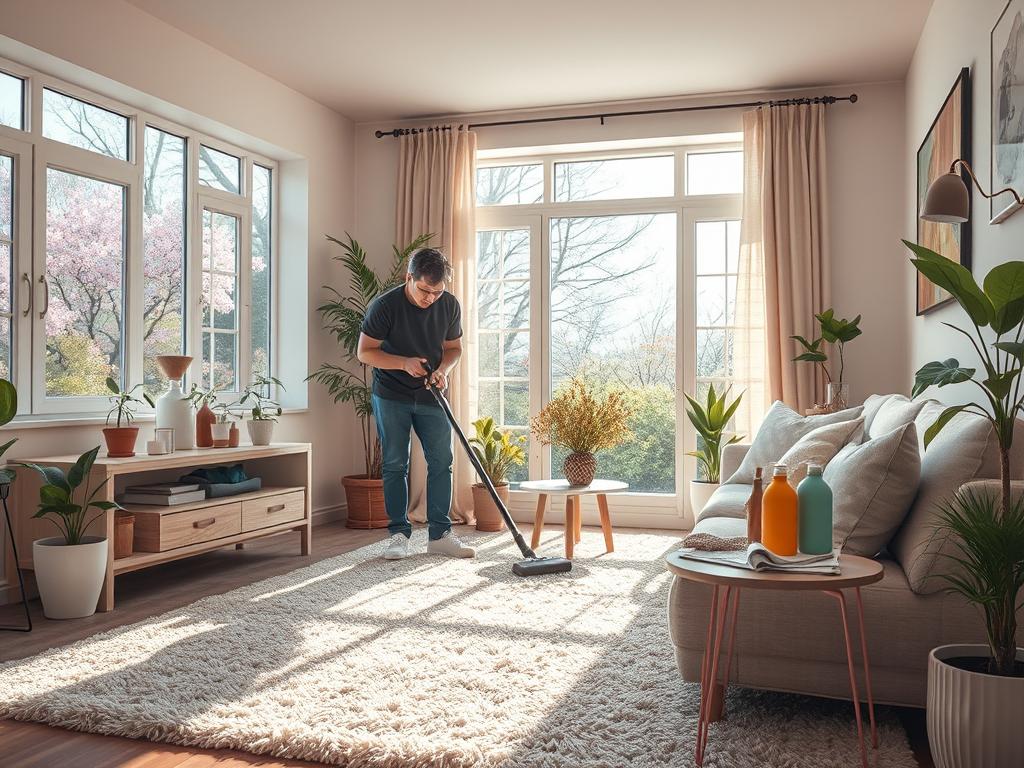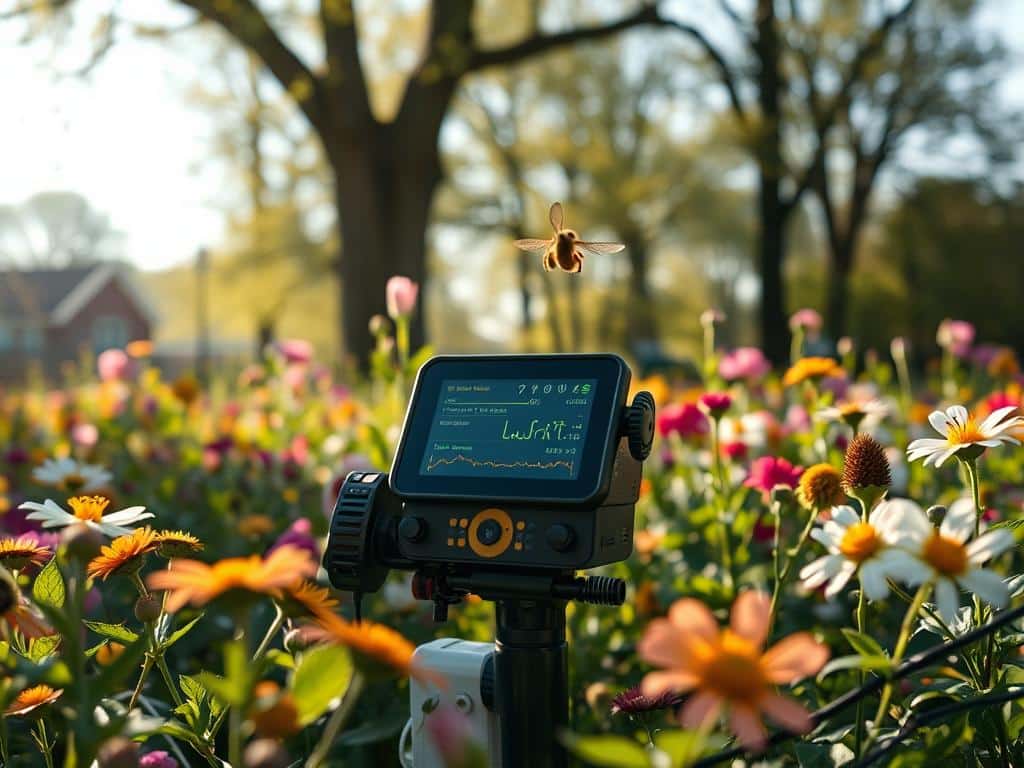
Spring means more pollen and allergens, which can cause allergic reactions. Many Americans deal with these allergies, also called hay fever. They can greatly impact daily life. Having a good strategy for allergy season is key. This includes watching pollen levels and keeping your home clean.
Talking to experts, like those at Samaritan Medical Care Center, can create a custom plan for managing allergies. Taking steps to improve indoor air can let you enjoy spring with less trouble. Simple actions, such as weekly washing of bedding in hot water and using HEPA filters, help a lot. Taking showers in the evening to remove allergens is another effective tip.
To tackle allergies well, know what triggers them and seek advice from allergy specialists. They suggest starting allergy meds about two weeks before symptoms usually begin, which is often by mid-February. For ongoing issues, treatments like immunotherapy or allergy shots could be a big help. Fighting allergies means staying ahead with smart habits and expert input, making for a sneeze-free spring.
Understanding Spring Allergies
Spring is not just about new beginnings. It also brings allergens that cause discomfort for many. Understanding the causes and symptoms is key to managing them better.
Common Allergens
In spring, the main allergens are pollen allergies, mold spores, and dust mites. Trees, grasses, and weeds spread pollen into the air, affecting susceptible people. The warmth can make the pollen season longer, making trees and plants produce pollen earlier.
Mold spores grow in wet places and can float in the air. Spring’s moisture makes mold spores peak. Dust mites, inside our homes, worsen hay fever, especially if we keep windows shut to stop pollen.
Typical Symptoms
Spring allergy symptoms vary from mild to severe and can seem like a cold. But, unlike a cold, hay fever lasts longer, often a week or two. You might sneeze, have a stuffy or runny nose, itch in your eyes, and have a sore throat. Severe cases can make you tired and disrupt your sleep.
Monitoring symptoms and consulting an allergy expert is vital. A specialist, like Gailen Marshall, M.D., Ph.D., at the American College of Allergy, Asthma, and Immunology (ACAAI), can offer personalized advice for pollen allergies, mold spores, and dust mites.
Allergen Avoidance Strategies
Managing spring allergies effectively requires a comprehensive plan. Nearly one in three adults and over one in four children in the United States face seasonal allergies. Knowing these strategies can improve your life during the allergy season.
Monitoring Pollen Counts
Pollen exposure can lead to asthma attacks and affect well-being. This includes your sleep quality, work productivity, and outdoor fun. So, it’s crucial to keep an eye on pollen counts. By using websites and apps for daily pollen forecasts, you can plan your outdoor times. Aim for late afternoons or after it rains, when pollen is lower.

Indoor Precautions
Keeping your indoor air clean is key to avoiding allergens. High-efficiency particulate air (HEPA) filters help and should be changed every six months. Cleaning often to remove dust mites and pet dander is helpful too. Also, keep windows shut on high pollen days and vacuum often. For more tips, visit this guide on preparing for air duct cleaning.
Personal Protection Methods
Using personal allergy protection gear helps lower allergen exposure. Wearing masks for outdoor work, sunglasses to block eye irritants, and hats to keep pollen out of your hair works well. Changing clothes and showering after being outside keep pollen out of your home. Drinking lots of fluids also thins nasal mucus, which helps remove allergens and eases congestion.
By following these approaches — checking pollen counts, purifying indoor air, and using protection gear — you can fight off spring allergies.
Spring Cleaning for Allergies
Spring cleaning is more than just making your home look nice. It helps reduce allergies too. By using smart cleaning strategies, you can cut down on allergens. This makes your home healthier.
Regular Cleaning Routine
It’s important to clean regularly to fight allergies. Use a wet cloth to dust. This keeps dust from flying around. Vacuum every week with a HEPA vacuum to catch tiny allergens.
Also, keep your home’s humidity under 50%. This will help control dust mites.
Dusting and Vacuuming Tips
When you vacuum, don’t forget carpets, rugs, and furniture. Use a HEPA vacuum for the best results. Dust with a damp or microfiber cloth to keep dust down.
If you have throw rugs and curtains, wash them in hot water often. This gets rid of dust mites.
Allergy-Proofing Your Bedroom
Your bedroom should be a safe place from allergies. Use allergy-proof bedding for your mattresses and pillows. This blocks dust mites. Wash all your bedding in hot water every week.
Keep windows closed when pollen is high. Fix leaks to avoid mold, which is a big allergy trigger.
Adding these steps to your spring cleaning can make your home healthier. You’ll have fewer allergens around.
Effective Symptom Relief Techniques
There are many ways to fight spring allergies. You can find relief in over-the-counter medications for symptoms like sneezing and itching. These can clear up congestion too.
Over-the-Counter Medications
Antihistamines and decongestants help with allergy symptoms. Antihistamines stop the histamines causing allergic reactions. Decongestants reduce nasal swelling. Try brands like Claritin, Zyrtec, and Sudafed. Always check with a doctor before starting any medication.
Nasal Irrigation
Nasal irrigation involves a saline solution to clean out your nose. It washes out mucus and allergens. Neti pots or saline sprays are used. The Mayo Clinic says it helps with congestion and sinus pressure. It keeps nasal passages moist.
Allergy Shots (Immunotherapy)
Immunotherapy, or allergy shots, can help with severe allergies. They slowly make your body used to allergens, cutting down reactions. There’s a needle-free option too, with drops or tablets. Allergy, Asthma & Immunology Associates of Tampa Bay recommends consulting an allergist first.
Using these techniques can help you control your allergies. They can improve your life during allergy season.



